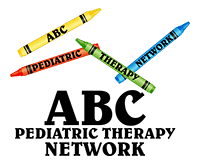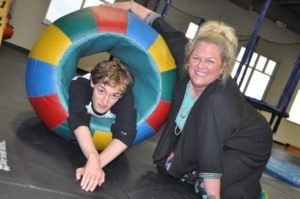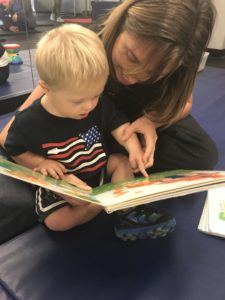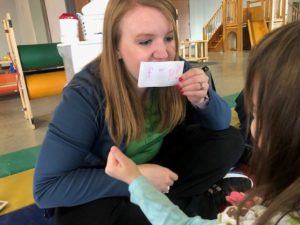Month: June 2018
 My first vacation with Jakob was a 22-hour road trip from Tampa to my parents’ house in Central Illinois. Jakob was 10 months old and already showing some signs that there might be something going on that made him “different.” He was pretty good in the car as long as he had his little yellow toy telephone in his hands and he was hitting the same buttons over and over to make the same series of beeps play. Over and over and over again. Non-stop, every minute we were in the car. He didn’t sleep and would cry if he dropped the phone. Which happened frequently. We were driving a Nissan Maxima and I couldn’t always reach around to find the phone for him so we made a lot of stops to retrieve it.
My first vacation with Jakob was a 22-hour road trip from Tampa to my parents’ house in Central Illinois. Jakob was 10 months old and already showing some signs that there might be something going on that made him “different.” He was pretty good in the car as long as he had his little yellow toy telephone in his hands and he was hitting the same buttons over and over to make the same series of beeps play. Over and over and over again. Non-stop, every minute we were in the car. He didn’t sleep and would cry if he dropped the phone. Which happened frequently. We were driving a Nissan Maxima and I couldn’t always reach around to find the phone for him so we made a lot of stops to retrieve it.
Exhausted by the end of the first travel day, we looked forward to some rest when we stopped at a hotel for the night. Thinking Jakob would finally sleep, we set up the pack and play. That turned out to be a big fat no-go. Wide awake and ready to party, he spent the majority of the night sitting up between us on the bed in the dark, laughing, kicking, crying and playing with his phone. No one slept much. The second day in the car, it was the same story but with a twist. By the time we reached my parents’ house, his lips and mouth were covered in this thick white creamy stuff. Thrush. A trip to my parents’ family doctor and some medication that made his entire mouth blue took care of that. On the trip back home to Tampa, we didn’t bother to stop at a hotel since we knew no one was going to sleep. We drove the 22+ hours home straight through mostly in silence except for the beeping of that phone.
I’ve taken Jakob on a lot of road trips since that first long, tiring adventure and it sure has gotten a lot easier. He still loves to ride in the car but that little yellow phone is gone. He gets so excited to stay at the “Hampton Inn House” and has the biggest grin on his face when he finds out the room number we’re staying in. He has no problem sleeping. He doesn’t eat any foods from restaurants so I always have to pack his meals. So if it’s more than one day in the car, we really need a suite at the hotel to make all the food prep easier. I make sure he has something to do that he enjoys like a color or sticker by number book or his iPad. The more activities, the better. I always double check that we have more than enough pairs of socks and underwear since he wants one fresh set in the morning and another at night. I take his toaster because we can’t put his waffles in one that has had anything with gluten in it. He is gluten and casein free and can have a reaction even if it only touches something he eats. Even though at this point I believe he’d do fine on a plane, there’s just too much we have to pack including groceries. And that damn toaster. Plus, he loves seeing the routes and roads that he’s been studying on his iPod and atlases and I wouldn’t want him to miss all the detours and potholes along the way.
For me, a vacation needs to be relaxing. If I have a kid who’s stressed, frustrated, tired, scared, angry or anxious, that’s not relaxing for anybody. So on any trip, I take with him, my main priority is his comfort level. I’m not going to take him somewhere that’s going to be overwhelming for him until he’s ready for it and is excited to go. Jakob is turning 17 this fall and we’re going to Sesame Place. He’s beyond thrilled and talks about it every day. I’m pumped knowing that we’re both going to have a ball. It’s perfect timing for us, and I personally can’t wait to meet Cookie Monster. He’s my favorite.
Read MoreHelp your child be comfortable separating from mom and dad: Expose your child to other people early on and consistently. Have grandparents, good friends, babysitters/daycare providers watch your child even for a short time of the day. It’s healthy for babies/toddlers to go through some separation anxiety as this tells you that they recognize mom and dad. However, the exposure to trusting other adults and being comfortable without mom and dad helps your child build confidence and trust in various environments and with and without their parents present.
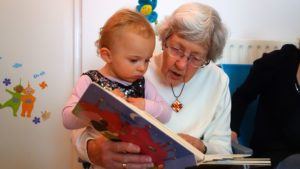
Following another adult’s directions: Teaching your child that they need to listen to you and other adults will help them learn to respect others and will help them to know to listen to their teacher and follow through with assignments as they get older. Following directions will be a big part of their school day; “throw your tissue away, put the crayons in the cup, put your coat on” these will all be frequent directions they will hear and need to follow.
Sitting in a group for Circle Time: In Circle Time, children will be expected to sit, listen to a book, talk about the weather and the day of the week. Parents can prepare their child for this by reading aloud and talking with them about the day so they have practice listening and engaging in conversations.
Working in small groups at Centers: Staying at a Center for 5-10 minutes will take some attention span and working next to their peers will take some parallel play, turn taking and sharing. You can model these behaviors when you play with your child! If you have friends with children about the same age you can set up a play date so they can practice these skills with peers they already know. The more children play, the more creativity and problem solving they will develop.
Being respectful of others: Demonstrating how to treat and talk to others will help your child learn how to be respectful of others and how others should treat them in return.
Learning to get along with peers: Until they are 3 1/2 years old, children will participate in parallel play where they play near each other. Associative play occurs until 4 1/2 when they trade and share toys. At home, you can practice trading, sharing, taking turns with games, pretend play and simple toys.
Learning numbers, counting, letters, recognize their name, shapes, colors: Using books and toys, you can talk to your child about colors, shapes and counting, “Let’s count how many bunnies are on the page!” When playing with toys, talk about the color the toy is, “we’re throwing the red ball!” In the car, listen to the Alphabet Song and songs about counting to make learning fun. Have magnetic letters on the refrigerator, put their name up in their room! When helping your child get dressed, talk about the color shirt/pants they have on, the more you build these facts into their daily vocabulary, the more these skills will come naturally.
Social emotional skills: Talk about feelings, express feelings and demonstrate how to handle frustrations in a healthy way. Setting consistent limits and rules will help kids learn what is expected. Teaching empathy will allow your child to be a good friend to others as well. Recognizing their feelings and guiding them through handling their emotions will minimize meltdowns and help them handle frustrations in a healthy way.
If your child needs help with any of the above skills to be ready for preschool, we want to help! Go to https://www.abcpediatrictherapy.com for more tips on how to help your child.
Read MoreIf your child has a speech disorder, he or she might be able to qualify for financial aid. The Social Security Administration (SSA) offers disability benefits to people of all ages who are unable to work, or in your child’s case, participate in typical childhood activities due to a disability. Speech disorders alone will not qualify, but depending on the cause of your child’s speech disorder, he or she may be eligible.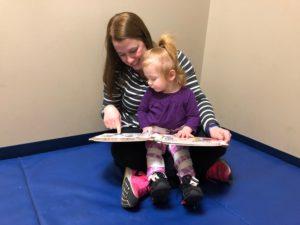
Technically Qualifying for Social Security
All children are eligible for Supplemental Security Income, or SSI benefits. SSI is only awarded to families with a severe financial need. This means that if you or your spouse earns a decent wage, you will not be eligible for disability benefits. The larger your family, the higher your monthly income limit will be.
For example, if you’re a single parent and you have one child, you cannot earn more than $38,000 before taxes in 2018 and still qualify for SSI. If you are a two-parent household of five, you could earn a little over $55,000 and still qualify. You can view a chart on the SSA’s website to determine how much your unique family could make while still qualifying.
Unfortunately, most children are denied SSI benefits due to household income limits. The good news is once your child turns 18, your income will no longer against your child, even if he or she still lives at home.
Medically Qualifying With a Speech Impairment
All conditions that qualify for disability benefits can be found in the Blue Book, the SSA’s manual of qualification criteria. There is a separate version of the Blue Book for both children and adults. Children do not qualify for a speech disorder alone, so this means that if your child has no other diagnoses or disabilities, he or she will unfortunately not qualify for disability benefits due to an inability to speak.
If your child’s speech impairment is cause by another condition, he or she may be eligible. There are many qualifying conditions listed in the Blue Book, but some conditions that often qualify include:
Autism
Autism can be found in Section 112.10 of the Blue Book. Under this listing, your child will qualify if he or she has measurable difficulty in any form of communication (verbal, nonverbal, social interaction) and has severely limited interests or participates in repetitive patterns of behavior. Children with autism will also need to have medical evidence proving severe difficulty with one of the following areas of physical functioning:
- Understanding and remembering information
- Interacting with others (playing with children, following adults’ instructions)
- Concentrating and accomplishing tasks
- “Adapting oneself,” which means controlling emotions in a school setting
Down syndrome, on the other hand, will automatically medically qualify with a karyotype analysis. The only exception is if your child has Mosaic Down syndrome (2% of the Down syndrome population), which often has less severe health and intellectual complications will need a little more medical evidence.
The en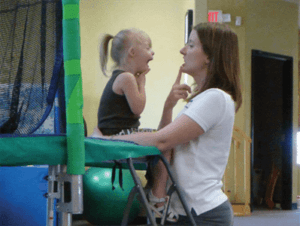 tire Blue Book can be found online so you can review the listings with your pediatrician to see if your child qualifies.
tire Blue Book can be found online so you can review the listings with your pediatrician to see if your child qualifies.
Starting Your Application
Before applying, you should always review the Child Disability Starter Kit to get a list of all documents needed before officially applying. You’ll have to apply for SSI benefits in person at your local SSA office. Your child does not have to be present for the application process. To schedule an appointment to apply in person, call the SSA toll free at 1-800-772-1213.
Helpful Resources:
Household SSI Limits: https://www.ssa.gov/ssi/text-child-ussi.htm
Childhood Blue Book: https://www.ssa.gov/disability/professionals/bluebook/ChildhoodListings.htm?PHPSESSID=2e1852cec574b204c1062189dbe882f2
Local SSA Office: https://www.disability-benefits-help.org/social-security-disability-locations
Child Disability Starter Kit: https://www.ssa.gov/disability/disability_starter_kits_child_eng.htm
Provided to ABC Pediatric Therapy Network, https://www.abcpediatrictherapy.com by:
Deanna Power
Director of Outreach
Disability Benefits Help
Read More Skip to content
Skip to content